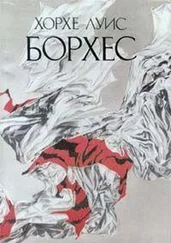Хорхе Борхес - Collected Fictions
Здесь есть возможность читать онлайн «Хорхе Борхес - Collected Fictions» весь текст электронной книги совершенно бесплатно (целиком полную версию без сокращений). В некоторых случаях можно слушать аудио, скачать через торрент в формате fb2 и присутствует краткое содержание. Год выпуска: 1999, ISBN: 1999, Издательство: Penguin (UK), Жанр: Старинная литература, на английском языке. Описание произведения, (предисловие) а так же отзывы посетителей доступны на портале библиотеки ЛибКат.
- Название:Collected Fictions
- Автор:
- Издательство:Penguin (UK)
- Жанр:
- Год:1999
- ISBN:9780140286809
- Рейтинг книги:5 / 5. Голосов: 1
-
Избранное:Добавить в избранное
- Отзывы:
-
Ваша оценка:
- 100
- 1
- 2
- 3
- 4
- 5
Collected Fictions: краткое содержание, описание и аннотация
Предлагаем к чтению аннотацию, описание, краткое содержание или предисловие (зависит от того, что написал сам автор книги «Collected Fictions»). Если вы не нашли необходимую информацию о книге — напишите в комментариях, мы постараемся отыскать её.
Collected Fictions — читать онлайн бесплатно полную книгу (весь текст) целиком
Ниже представлен текст книги, разбитый по страницам. Система сохранения места последней прочитанной страницы, позволяет с удобством читать онлайн бесплатно книгу «Collected Fictions», без необходимости каждый раз заново искать на чём Вы остановились. Поставьте закладку, и сможете в любой момент перейти на страницу, на которой закончили чтение.
Интервал:
Закладка:
He stopped talking; I realized that he had died. In a way, I died with him—in grief I leaned over his pillow, but there was no one there anymore.
I fled the room. Outside, there was no patio, no marble staircase, no great silent house, no eucalyptus trees, no statues, no gazebo in a garden, no fountains, no gate in the fence surrounding the hotel in the town of Adrogué.
Outside awaited other dreams.
Blue Tigers
A famous poem by Blake paints the tiger as a fire burning bright and an eternal archetype of Evil; I prefer the Chesterton maxim that casts the tiger as a symbol of terrible elegance. Apart from these, there are no words that can rune the tiger, that shape which for centuries has lived in the imagination of mankind. I have always been drawn to the tiger. I know that as a boy I would linger before one particular cage at the zoo; the others held no interest for me. I would judge encyclopedias and natural histories by their engravings of the tiger. When the Jungle Books were revealed to me I was upset that the tiger, Shere Khan, was the hero's enemy. As the years passed, this strange fascination never left me; it survived my paradoxical desire to become a hunter as it did all common human vicissitudes. Until not long ago (the date feels distant but it really is not), it coexisted peacefully with my day-to-day labors at the University of Lahore. I am a professor of Eastern and Western logic, and I consecrate my Sundays to a seminar on the philosophy of Spinoza. I should add that I am a Scotsman; it may have been my love of tigers that brought me from Aberdeen to Punjab. The outward course of my life has been the common one, but in my dreams I always saw tigers. Now it is other forms that fill them.
I have recounted all these facts more than once, until now they seem almost to belong to someone else. I let them stand, however, since they are required by my statement.
Toward the end of 1904, I read that in the region of the Ganges delta a blue variety of the species had been discovered. The news was confirmed by subsequent telegrams, with the contradictions and incongruities that one expects in such cases. My old love stirred once more. Nevertheless, I suspected some error, since the names of colors are notoriously imprecise. I remembered having once read that in Icelandic, Ethiopia was "Blaland," Blue Land or the Land of Black Men. The blue tiger might well be a black panther. Nothing was mentioned of stripes; the picture published by the London press, showing a blue tiger with silver stripes, was patently apocryphal. Similarly, the blue of the illustration looked more like that of heraldry than reality. In a dream, I saw tigers of a blue I had never seen before, and for which I could find no word. I know it was almost black, but that description of course does scant justice to the shade I saw.
Some months later, a colleague of mine told me that in a certain village miles from the Ganges he had heard talk of blue tigers. I was astonished by that piece of news, because tigers are rare in that area.
Once again I dreamed of the blue tiger, throwing its long shadow as it made its way over the sandy ground. I took advantage of the end of term to make a journey to that village, whose name (for reasons that will soon be clear) I do not wish to recall.
I arrived toward the end of the rainy season. The village squatted at the foot of a hill (which looked to me wider than it was high) and was surrounded and menaced by the jungle, which was a dark brown color. Surely one of the pages of Kipling contains that village of my adventure, since all of India, all the world somehow, can be found there. Suffice it to report that a ditch, and swaying cane-stalk bridges, constituted the huts' fragile defense. Toward the south there were swamps and rice fields and a ravine with a muddy river whose name I never learned, and beyond that, again, the jungle.
The people who lived in the village were Hindus. I did not like this, though I had foreseen it. I have always gotten along better with Muslims, though Islam, I know, is the poorest of the religions that spring from Judaism.
We feel ordinarily that India teems with humanity; in the village I felt that India teemed with jungle. It crept virtually into the huts. The days were oppressive, and the nights brought no relief.
I was greeted upon my arrival by the elders, with whom I sustained a tentative conversation constructed of vague courtesies. I have mentioned the poverty of the place, but I know that it is an axiom of every man's belief that the land he lives in and owes his allegiance to possesses some unique distinction, and so I praised in glowing terms the dubious habitations and the no less dubious delicacies served me, and I declared that the fame of that region had reached Lahore. The expressions on the men's faces changed; I immediately sensed that I had committed a faux pas I might come to regret. I sensed that these people possessed a secret they would not share with a stranger. Perhaps they worshiped the blue tiger, perhaps they were devotees of a cult that my rash words had profaned.
I waited until the next morning. When the rice had been consumed and the tea drunk down, I broached my subject. Despite the previous night's experience, I did not understand—was incapable of understanding—what took place then. The entire village looked at me with stupefaction, almost with terror, but when I told them that my purpose was to capture the beast with the curious skin, they seemed almost relieved at my words. One of them said he had seen the animal at the edge of the jungle.
In the middle of the night, they woke me. A boy told me that a goat had escaped from the corral and that as he'd gone to look for it, he'd seen the blue tiger on the far bank of the river. I reflected that the scant light of the new moon would hardly have allowed him to make out the color, but everyone confirmed the tale; one of them, who had been silent up until that moment, said he had seen it, too. We went out with the rifles and I saw, or thought I saw, a feline shadow slink into the shadows of the jungle.
They did not find the goat, but the creature that had taken it might or might not have been my blue tiger.
They emphatically pointed out to me other traces—which of course proved nothing.
After a few nights I realized that these false alarms were a sort of routine. Like Daniel Defoe, the men of the village were skilled at inventing circumstantial details. The tiger might be glimpsed at any hour, out toward the rice fields to the south or up toward the jungle to the north, but it did not take me long to realize that there was a suspicious regularity in the way the villagers seemed to take turns spotting it. My arrival upon the scene of the sighting invariably coincided with the precise instant that the tiger had just run off. I was always shown a trail, a paw mark, some broken twig, but a man's fist can counterfeit a tiger's prints. Once or twice I witnessed a dead dog. One moonlit night we staked out a goat as a lure, but we watched fruitlessly until dawn. I thought at first that these daily fables were meant to encourage me to prolong my stay, for it did benefit the village—the people sold me food and did domestic chores for me. To verify this conjecture, I told them that I was thinking of moving on to another region, downstream, in quest of the tiger. I was surprised to find that they welcomed my decision. I continued to sense, however, that there was a secret, and that everyone was keeping a wary eye on me.
Читать дальшеИнтервал:
Закладка:
Похожие книги на «Collected Fictions»
Представляем Вашему вниманию похожие книги на «Collected Fictions» списком для выбора. Мы отобрали схожую по названию и смыслу литературу в надежде предоставить читателям больше вариантов отыскать новые, интересные, ещё непрочитанные произведения.
Обсуждение, отзывы о книге «Collected Fictions» и просто собственные мнения читателей. Оставьте ваши комментарии, напишите, что Вы думаете о произведении, его смысле или главных героях. Укажите что конкретно понравилось, а что нет, и почему Вы так считаете.












